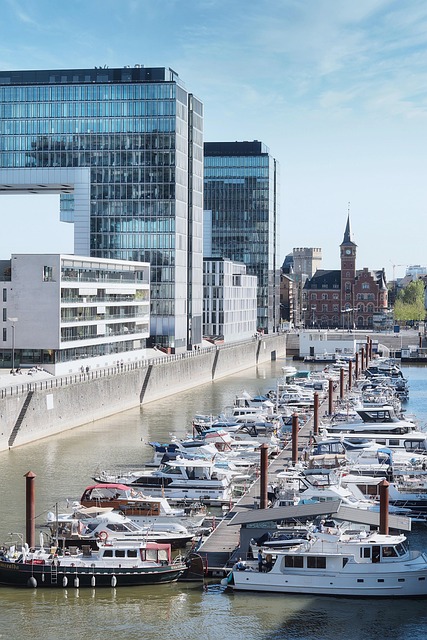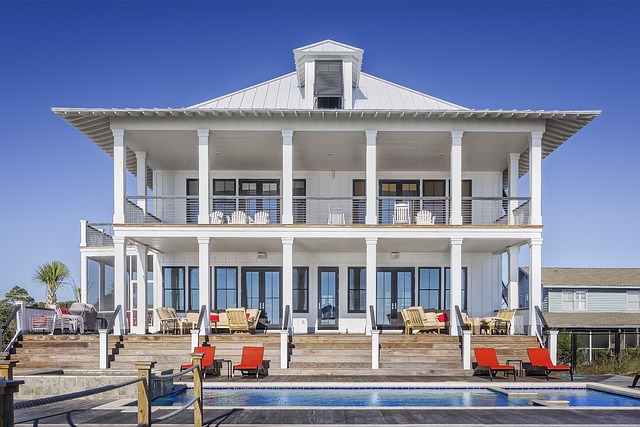In Denver's competitive real estate market, fix and flip loans empower investors by providing flexible financing for purchasing undervalued properties and conducting renovations. These specialized loans cater to each project's unique needs, offering personalized packages that streamline the process. To qualify, borrowers must demonstrate expertise with a proven track record, strong financial health, and detailed plans. Lenders assess property value, borrower creditworthiness, market demand, and renovation scope for loan terms and interest rates. Overcoming initial denials through thorough preparation and professional guidance increases success rates, as evidenced by an investor who secured funding and achieved significant profits.
In the dynamic Denver real estate market, understanding tailored loan packages, especially fix and flip loans, is crucial for investors aiming to maximize renovation projects’ potential. This comprehensive guide explores the benefits of customized financing, the qualification process, key considerations for lenders, and inspiring success stories. Unlock the secrets to securing a fix and flip loan in Denver and navigate the path to lucrative investments with confidence. Discover how these tailored packages can transform your vision into reality.
- Understanding Fix and Flip Loans: A Denver Real Estate Investor's Guide
- The Benefits of Customized Loan Packages for Renovation Projects
- How to Qualify for a Fix and Flip Loan in Denver
- Key Factors Lenders Consider When Structuring Tailored Loan Plans
- Success Stories: Fix and Flip Loan Denial to Approval
Understanding Fix and Flip Loans: A Denver Real Estate Investor's Guide

In the dynamic world of Denver real estate investing, understanding fix and flip loans is a game-changer for those looking to maximize profits through renovation projects. These specialized financing options are tailored for investors aiming to purchase, renovate, and quickly resell properties, known as the “flip” strategy. A fix and flip loan Denver provides the necessary capital to cover the costs of purchasing an undervalued or distressed property, along with renovations required to increase its value before selling.
Denver’s vibrant real estate market presents unique opportunities for investors. Fix and flip loans are designed to cater to this niche, offering flexible terms and funding for both the purchase price and renovation expenses. This approach allows investors to navigate the competitive market, transform properties, and realize significant returns in a relatively short time frame. By tapping into these tailored loan packages, Denver real estate investors can unlock their flipping potential and contribute to the city’s evolving landscape.
The Benefits of Customized Loan Packages for Renovation Projects

Customized loan packages, tailored for renovation projects, offer a multitude of benefits to both individuals and businesses looking to embark on fix and flip ventures in Denver. These flexible financing options recognize that each property and investment strategy is unique, allowing borrowers to secure funding aligned precisely with their needs. Unlike one-size-fits-all mortgage solutions, tailored loans provide the freedom to access capital for both the acquisition of distressed properties and the necessary renovations, all under a single roof.
This personalized approach streamlines the financing process, saving time and effort. Fix and flip loan providers in Denver who offer customized packages often have deep knowledge of the local real estate market, enabling them to structure deals that consider potential property value increases post-renovation. This forward-thinking perspective ensures borrowers can access the funds needed to turn a fixer-upper into a profitable investment property, fostering growth and profitability for both the lender and borrower in this dynamic market.
How to Qualify for a Fix and Flip Loan in Denver

To qualify for a Fix and Flip Loan in Denver, prospective borrowers must first demonstrate their expertise in the real estate market. Lenders look for individuals with a proven track record in successful flip projects, showcasing their ability to identify undervalued properties, execute renovation plans, and quickly resell them for a profit. This includes providing evidence of previous flips, financial statements, and a detailed plan outlining the proposed project’s scope, budget, and expected return on investment.
Additionally, lenders assess borrowers’ financial health and stability. A strong credit score, substantial savings, and a history of responsible borrowing are essential. Borrowers should also be prepared to offer collateral, typically in the form of the property they intend to flip, ensuring the lender has security for the loan. The process involves careful documentation, thorough scrutiny of the borrower’s background, and a comprehensive analysis of the fix-and-flip project’s feasibility.
Key Factors Lenders Consider When Structuring Tailored Loan Plans

When structuring tailored loan plans, especially for fix and flip loans in Denver, lenders carefully evaluate several key factors. These include the property’s appraised value, the borrower’s credit history and financial stability, as well as their experience in real estate flipping. Lenders want to ensure that the proposed renovation plans are realistic and feasible, aligning with the expected increase in property value post-rehab. The market demand for similar properties in the area is also considered; a strong local real estate market can make these loans more attractive.
Additionally, lenders assess the borrower’s ability to repay the loan promptly, taking into account their current income and potential future returns from the fix and flip project. Other factors like the type of renovations planned, the estimated timeline for completion, and any existing debts or obligations also play a significant role in determining the terms and interest rates offered on these specialized loans.
Success Stories: Fix and Flip Loan Denial to Approval

Many real estate investors in Denver have experienced the frustrating reality of having their fix and flip loan applications denied. It’s a common hurdle, but it doesn’t have to be an insurmountable one. Success stories abound of investors who, after facing initial denials, were able to turn things around and secure the funding they needed. These wins often come from a combination of factors: a thorough understanding of their target market, meticulous property evaluation, a solid business plan, and a willingness to address any issues that initially caused the loan denial.
One such story involves an investor who targeted a specific Denver neighborhood known for its potential for renovation. Their initial application was denied due to concerns about the property’s condition and the estimated repair costs. However, by hiring a professional inspector and working with a lender who specialized in fix and flip loans, they were able to provide compelling data demonstrating the property’s value after repairs. This shifted the lender’s perspective, leading to approval and enabling the investor to successfully complete their flip, turning a potential loss into a significant profit.
In the competitive Denver real estate market, tailored loan packages, specifically designed for fix and flip projects, are a game-changer. By understanding the unique benefits and qualification criteria of these loans, investors can navigate the process with confidence. From structuring plans that align with renovation budgets to sharing success stories of denied loans turning into approvals, this guide has empowered Denver real estate investors to seize opportunities and maximize their investment potential through tailored fix and flip financing.
